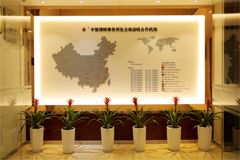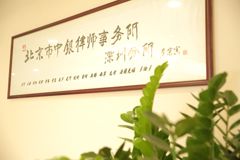2025年2月19日下午,为紧跟人工智能高速发展的时代潮流,中银深圳在法治天下会议室成功举办主题为“人工智能在律师业务中的实际应用”的业务研讨会。


活动由中银深圳公司综合业务专业委员会和国际业务委员会联合承办,特别邀请到长期关注和实践人工智能应用的解杰律师作为特邀嘉宾。解杰律师是宁夏法思成律师事务所主任,有着十五年的司法机关工作经验,长期从事重大、疑难、复杂民商事纠纷争议审理和代理工作。出席活动的另有中银深圳合伙人、管委会、专业委等人员。此次活动吸引了律所内外众多法律专业人士到场参加,气氛热烈,反响积极。

活动由公司综合业务专业委员会和国际业务委员会副主任张晶晶律师担任主持人。管委会委员廖烨明律师发表开场致辞,首先热烈欢迎解律师到访交流,表示法律行业在面对技术革新时要具备快速的应变能力,律师同行应当热烈拥抱技术革新。

张晶晶律师

廖烨明律师
在大语言模型(LLM)deepseek引发全球关注并不断应用到各行业的背景下,集成deepseek R1等模型的人工智能工具能够在word、ppt、excel、邮件、视频会议、网盘、表单等办公工具中,高效协助律师处理法律研究、商事纠纷中非法律专业问题等任务。
研讨会中,解律师围绕法律文本的复用、知识管理、法律咨询、法律研究、ppt生成等实践问题进行了分享。文本是律师工作的主要场内工具,国内绝大多数律所或律师在工作中形成的文本(起诉状、代理词、辩论意见、法律意见等),在过去未得到充分利用。解杰律师讲解了如何通过“源”将每个律师文本统一汇集到同一平台,被人工智能训练使律所自身的业务数据(文本、邮件、会议、聊天)在安全可控下与人工智能已自带大语料库相结合。在法律文本内,律师可以借助人工智能对法律问题、非法律问题不断在提示词下询问,加速检索效率,不断聚焦在法律问题本身。在文本长达十多页甚至上百页文本没有时间阅读时,人工智能可以提取文本摘要方便律师迅速了解大致内容。除在文本内询问外,在专用询问框询问将会对律所或律师历史形成的文本、电子邮件、聊天记录、视频会议、网盘、幻灯片等进行学习、提取、生成,加速案件分析诉讼策略的形成。
解杰律师结合具体案例演示了在文本内向人工智能专业询问、修改、翻译、提取摘要等功能。在法律宣讲中,往往涉及幻灯片制作,律师是文字工作者不太擅长ppt制作,利用人工智能从文本中快速生成ppt,更多聚焦法律文字本身,解杰律师具体演示了将文本(word、PDF)直接生成ppt及ppt的设计器功能。在出海业务中,沟通效率直接取决于语言问题,人工智能将电子邮件、参会人员通话自动翻译成目标语言,在人工智能帮助下,律师可以迅速回顾会议内容、列出会议中待办事项、列出讨论过的主要想法、生成会议内容以及标注会议聊天的重点(不出海业务中也可常用会议),大幅提高律师出海(或不出海时)做业务的沟通效率,解杰律师具体演示了人工智能在电子邮件、在线会议上的具体使用。
中银深圳国际业务委员会主任黄海律师在活动中发言,表示中银深圳会始终致力于推动法律行业与先进科技的结合,未来律师需要不断提升对人工智能技术的理解与使用,才能在日益竞争激烈的法律行业中保持领先。
中银深圳公司综合业务专业委员会和国际业务委员会副主任张晶晶律师结合人工智能软件在法律业务上的实际使用做了精彩的经验分享。
在互动提问环节中,与会人员积极提问,针对人工智能在团队协作、合同审查、案件预测、法律咨询等具体领域的应用进行了深入交流。解杰律师详细回答了提问,分享了更多实践中的经验与建议,激发了现场观众对于AI技术应用的更高关注与兴趣。
此次活动持续了3个小时,内容丰富,不仅拓宽了法律行业人士对人工智能技术的认知,更为与会者提供了许多实际的操作建议和方法,为未来律师业务的发展注入了新的动力。与会者纷纷表示,人工智能将在未来成为律师行业不可或缺的重要工具,极大提升律师事务所的工作效率和服务质量。与会人员一致认为AI将会改变法律服务模式,将以往工作成果自动训练,在目前面临的诉讼与非诉项目上大幅提升工作效率,减少内耗、重复、无效的工作,使律师专注于案件本身法律问题的创造性解决。
中银深圳未来将继续关注人工智能与法律服务的结合,不断利用新的科技手段提升客户服务质量和效率。

ZhongYin (ShenZhen) Law Firm Hosts
"Practical Applications of Artificial Intelligence in Legal Practice" Lecture
On the afternoon of February 19, 2025, a seminar themed "Practical Applications of Artificial Intelligence in Legal Practice" was successfully held in the Rule of Law Hall of the Zhongyin Shenzhen Law Firm.
The seminar was jointly organized by the Corporate Comprehensive Business Professional Committee and the International Business Committee. We were honored to have invited Lawyer Jie Xie, the director of Ningxia Fasicheng Law Firm, to share his insights. Lawyer Jie Xie has fifteen years of judicial experience and has long been engaged in handling major, difficult, and complex civil and commercial disputes. He runs the WeChat public account "Talking About Law" with over 100,000 followers. Lawyer Jie Xie has been invited to lecture on "Practical Applications of Artificial Intelligence in Legal Practice" at many law firms and bar associations.
The seminar attracted many legal professionals from within and outside the firm. Against the backdrop of the widespread attention to the large language model (LLM) deepseek, the application of AI integrating the deepseek R1 model in word, ppt, excel, email, video conferences, cloud drives, forms, and other practical uses was demonstrated. This was to address legal consultations and non-legal professional knowledge scenarios encountered by lawyers in handling cases. Lawyer Jie Xie used numerous real-life cases (wills, equity disputes, divorce cases, construction projects, etc.) to specifically demonstrate how AI can help lawyers improve processing efficiency, reduce repetitive searches and organization, and enhance the quality of legal services.
Committee member and senior partner Liao Yeming gave an enthusiastic opening speech, emphasizing the need for the legal industry to possess quick adaptability in the face of technological innovation. He pointed out the broad application potential of artificial intelligence in future law firms. Lawyer Huang Hai, director of the International Business Committee, made an excellent concluding speech, stating that Zhongyin Shenzhen Law Firm will always be committed to promoting the integration of the legal industry with advanced technology. He mentioned that future lawyers need to continuously improve their understanding and use of AI technology to maintain a competitive edge in the increasingly competitive legal industry. Zhang Jingjing, deputy director of the Corporate Comprehensive Business Professional Committee and the International Business Committee, served as the host of the seminar and shared experiences on the practical use of AI software in legal business.
Text is a major internal tool for lawyers. Most of the texts (complaints, agent words, debate opinions, etc.) formed by law firms or lawyers in China are in a wasted state and have not been collected and integrated into a platform for continuous AI learning. This results in repetitive research and searches for the same legal issues, with every lawyer repeating the paths already taken by others, wasting significant time and effort. Lawyer Jie Xie explained how to use "source" to integrate each lawyer's texts into a unified platform, where AI can be trained using the law firm's own business data (texts, emails, meetings, chats) combined with AI's built-in large corpus in a secure and controllable manner.
Within legal texts, lawyers can continuously ask about legal and non-legal issues under prompt words with the help of AI, accelerating search efficiency and focusing on the legal issues themselves. When the text is over ten pages or even hundreds of pages long, and there is no time to read it, AI can extract a summary to help lawyers quickly understand the general content. In addition to asking within the text, asking in a dedicated query box will learn, extract, and generate from texts, emails, chat records, video conferences, cloud drives, slides, etc., formed in the history of the law firm or lawyer, accelerating the formation of case analysis and litigation strategies. Lawyer Jie Xie demonstrated the professional query, modification, translation, and summary extraction functions of AI in the text combined with specific cases. In legal presentations, which often involve slide production, lawyers are text workers and not very good at making PPTs. AI can quickly generate PPTs from texts, focusing more on the legal text itself. Lawyer Jie Xie specifically demonstrated the function of directly generating PPTs from texts (word, PDF) and the designer function of PPT. In outbound business, communication efficiency directly depends on language issues. AI can automatically translate electronic emails and conference calls of participants into the target language. With the help of AI, lawyers can quickly review meeting content, list pending items from the meeting, list main ideas discussed, generate meeting content, and mark key points of meeting chats (also commonly used in non-outbound business meetings), greatly improving communication efficiency in outbound (or non-outbound) business. Lawyer Jie Xie demonstrated the specific use of AI in electronic emails and online meetings.
In the interactive Q&A session, meeting participants actively asked questions, and in-depth exchanges were conducted on the specific applications of AI in team collaboration, contract review, case prediction, legal consultation, etc. Lawyer Jie Xie answered the questions in detail and shared more practical experience and suggestions, sparking higher attention and interest in the application of AI technology among the audience.
The seminar lasted for three hours, with rich content. It not only broadened the understanding of AI technology among legal professionals but also provided many practical operational suggestions and methods for the attendees, injecting new momentum into the future development of legal business. The attendees expressed that AI will become an indispensable important tool in the future legal industry, significantly improving the work efficiency and service quality of law firms. They unanimously believed that AI will change the legal service model, automatically train past work results, and significantly improve work efficiency in current litigation and non-litigation projects, reducing internal friction, repetition, and ineffective work, allowing lawyers to focus on the creative resolution of legal issues in cases.
Zhongyin Shenzhen Law Firm will continue to promote the integration of AI and legal services, contributing more technological power to the innovation and development of the industry.

















